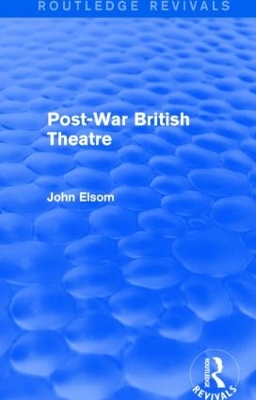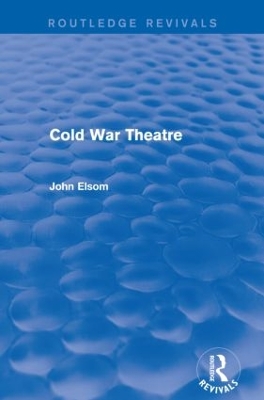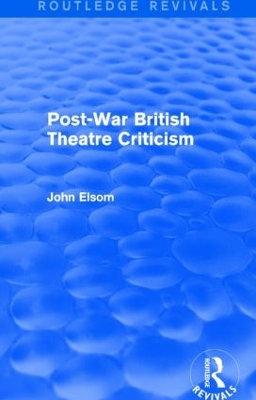Routledge Revivals
3 total works
Since the Second World War, we have witnessed exciting, often confusing developments in the British theatre. This book, first published in 1976, presents an enlightening, objective history of the many facets of post-war British theatre and a fresh interpretation of theatre itself.
The remarkable and profound changes which have taken place during this period range from the style and content of plays, through methods of acting, to shapes of theatres and the organisational habits of managers. Two national theatres have been brought almost simultaneously into existence; while at the other end of the financial scale, the fringe and pub theatres have kicked their way into vigorous life.
The theatre in Britain has been one of the post-war success stories, to judge by its international renown and its mixture of experimental vitality and polished experience. In this book Elsom presents an approach to the problems of criticism and appreciation which range beyond those of literary analysis.
Cold War Theatre, first published in 1992, provides an account of the theatrical history within the context of East/West politics. Its geographical span ranges from beyond the Urals to the Pacific Coast of the US, and asks whether the Cold War confrontation was not in part due to the cultural climate of Europe.
Taking the McCarthy era as its starting point, this readable history considers the impact of the Cold War upon the major dramatic movements of our time, East and West. The author poses the question as to whether European habits of mind, fostered by their cultures, may not have contributed to the political stalemates of the Cold War.
A wide range of actors from both the theatrical and political stages are discussed, and their contributions to the theatre of the Cold War examined in a hugely enjoyable and enlightening narrative. This book is ideal for theatre studies students.
This book, first published in 1981, sets out the critical reaction to some fifty key post-war productions of the British theatre, as gauged primarily through the contemporary reviews of theatre critics. The plays chosen are each, in their different ways, important in their contribution to the development of the British theatre, covering the period from immediately after the Second World War, when British theatre fell into decline, through the revival of the late 1950s, to the time in which this book was first published, in which British theatre enjoyed a high international reputation for its diversity and quality.
This book is ideal for theatre studies students, as well as for the general theatre-goer.


